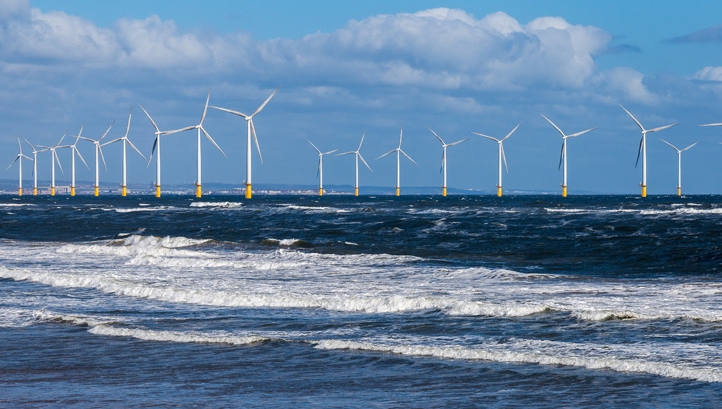Recent analysis by a respected defence and security blog — Thin Pinstriped Line — has led me to ponder the real issue at the heart of the UK’s 2020/21 Integrated Defence and Security Review. The piece asked the question: ‘What are the skills needed, what equipment is needed and what can the UK as a medium power credibly do and what should it step back from doing?’ The blog piece itself focuses on the argument about the continued use of tanks in the British Army — a major bone of contention for this, or any, review. In contrast to ‘soft power’, concepts of hard power (see page v) will typically include military assets such as tanks. The argument within this Review consists of the very legitimate case for allowing coalition allies and partners to retain tank forces, whilst the UK focuses on bringing force “enablers” to the proverbial party, alongside our usual strengths like Special Forces and ever-specialising infantry. Such enablers — not your usual hard power assets — include CEMA (Cyber and Electro-Magnetic Activity) expertise, specialist communications, intelligence, and logistics.
The Thin Pinstriped Line does raise a legitimate question, but with one major issue: the UK is still categorically a great power. The debate over tanks is a useful and illustrative example of a wider argument: that a state does not have to have a broad portfolio of traditional hard power assets to be considered a great power. Furthermore, to fully answer the Thin Pinstriped Line’s question, what global role should such a power have?
Contemporary commentary
Current discourse has settled into various descriptions of the UK as a middle or medium power, with strange — and almost oxymoronic — qualifications of ‘multipolar medium power’. Some justify it by downgrading France into the same category. Others prematurely declare that Brexit signals the death-knell of the UK as a great power; one piece argues the UK is now akin to a ‘banana republic’. According to The Economist, British thinking on Europe and Brexit ‘has often been clouded by nostalgia for lost empire’. Ridiculously, Patrick Cockburn — respected journalist, historian and Oxford alumni — argues Brexit is the end of the UK as a ‘superpower’. Potentially worse than that, in my opinion, is a condescending — and in my eyes, short-sighted — piece by Sir Max Hastings announcing the UK as a ‘middle-ranking offshore island’ self-obsessed with its victorious role in the Second World War. The most significant calamitous exclamation comes from former UK Prime Minister John Major — notable for signing the 1992 Maastricht Treaty bringing the UK into the EU. Major argued that the UK is ‘no longer a great power’ and therefore could not be so ruthless with the EU in the final Brexit talks, nor be the bridge between the US and Europe. Major’s basis for this argument is that the UK constitutes only 1% of the world’s population and is a ‘top second-rank power’. Hardly convincing when a second-rank power is a great power.
Furthermore, take this opinion piece that evidences the UK’s loss of great power status solely on this limited BBC analysis. Both pieces point to the UK’s Iraq and Afghanistan legacy, combined with the subsequent UK inaction over Syria, as evidence that the UK is no longer a great power. But inaction over Syria is much more a question of policymaking and not lack of capability. Rather, I believe the inaction was more a symptom of the dispirited and risk-averse post-Iraq/Afghanistan condition — one imbued within the policymakers of the time, including Prime Minister David Cameron. After all, the UK was able to help form a coalition against Daesh, yet we did not – would not – do the same against chemical weapon use in Syria. Two comparable problems in the same locale, requiring similar responses with the same capabilities to hand; yet diametrically opposed policy decisions. Further, it is my belief that there is something deeper and far more consequential than a post-Iraq/Afghanistan condition at hand with all this self-deprecation — self-flagellation even. In George Orwell’s typically erudite words: ‘England is perhaps the only great country whose intellectuals are ashamed of their own nationality.’
Such self-deprecation besides, there are multiple other reasons why the UK is incorrectly termed a medium power. Some of it is tied up in debates over ‘Little Englandism’, ‘national Hobbitism’ or even ‘Goliathism’. But essentially it comes down to a misunderstanding or ignorance of the power definitions, how the geopolitical power rankings are calculated, what we have to offer, and why that matters.
Definitions
Conceptually, the classifications of geopolitical power dates to the start of the 16th Century, by an Italian political theorist Giovanni Botero, who stipulated that a middle power (“mezano”) ‘has sufficient strength and authority to stand on its own without the need of help from others.’ As this contemporary piece states, the concept to this day remains ‘inchoate’ as well as ‘imprecise’, chiefly because it encompasses countries who reside across the (diverse) top 20 in economics and ‘lack large-scale military power’. But what defines the scale of military power?
The international relations theorist Hedley Bull argued that, aside from possessing a world-leading military, great powers must be globally recognised to have ‘special rights and duties’ — i.e. great powers ‘collectively constitute an institution of international society.’ This conclusion reinforces the point that power is about more than just military strength. Furthermore, when you have a powerful state like the US and a potential challenger to the status within China, there must be another classification to differentiate the staggeringly powerful states from the rest of the active players in the international community. This last point leads us to consider the option given by Carston Holbraad, to have some kind of ‘primary’ and ‘secondary’ distinction, before middle power. Going back to Prime Minister John Major’s erroneous argument, this is the distinction he so carelessly overlooked. At the time of Holdbraad’s writing, in 1984, his ‘primary’ (i.e. superpower) denoted the US and Soviet Union; ‘secondary’ (great power) China, France, Japan, the UK and West Germany.
Geopolitical rankings
Economic and military strength typically constitute the two common methods of measuring power. Within those parameters, the UK is in the realms of a top ten power. Economically, the UK is high up the rankings in Gross Domestic Product (GDP — sixth), Gross National Income (GNI — seventh), GDP per capita (23rd — even Germany is only 18th, France 26th) and GNI per capita (26th — Germany, again, 18th and France 25th). Then, in one basic military power grading (of hardware assets), the UK ranks eighth. Or just consider that the UK is one of only five states with a permanent seat on the UN Security Council and one of only nine with nuclear weapons.
But, as the analysis in the previous section states, a geopolitical power ranking must be about so much more than just basic one-dimensional stats on economics or the military. Even encompassing other power rankings, like new measurements of cyber power (the UK ranks third), rankings must include an intelligent synthesis of numerous factors, across the (usually “softer”) types of power.
One usefully comprehensive system to understand rankings comes from James Rogers at the Henry Jackson Society. Roger’s ‘Audit of Geopolitical Capability’ draws together ‘national base’ (wealth, population, self-sufficiency), ‘national structure’ (economics, technological ability, cultural influence), ‘national instruments’ (diplomacy, military) and ‘national resolve’ from over 1,240 data observations into a specific mathematical formula. Consequently, the UK is ranked second, far behind the US, but on an almost equal footing to China and a bit ahead of France.
Context and relevance
Beyond potentially seeming like inconsequential pedantry, why does this issue of ranking the UK’s power matter? The ranking, and how we conceptualise that, matters because of the UK’s responsibilities and capability to achieve policy aims — what it wants to, could, or even, should achieve in or for the world. This is exactly what the Integrated Defence and Security Review is analysing. The UK’s unique geographical position has required different hard or soft power capabilities from those on the mainland continent for nearly half a millennium. Instead, one can be military smaller but more agile and possess stronger, but potentially intangible, hard or soft power — or combination thereof, known as smart power — assets. Such assets include economic development, a world-leading intelligence capability and the aforementioned CEMA space. In technology and green policy, it is also becoming increasingly clear that the UK is setting out to become what one could call a “green power” — something I argued for in October 2019 — by committing to furthering its current global lead in wind and emerging lead in hydrogen technology.

The geopolitical situation today presents certain opportunities and realities that we must react to and prepare for. The world has changed, and I would argue not enough people yet recognise it; whilst globalisation has continued unabated, the western liberal project has declined. The world is being ‘dislocated’ by what Thomas Friedman aptly terms as the ‘accelerations’ of technology (Moore’s Law), globalisation and climate breakdown. Then in November 2020, as I argued in my last piece for this publication, much of the UK (government and public), like most states, is allowing itself to be too distracted by Covid-19 and the usually botched responses. Instead, the UK should be paying greater attention to the manifesting economic crash — despite its inherent link to the UK and other state’s Covid-19 response — the crossroads in our relationship with the US and EU and, finally, to the increasing great power competition with China, which includes the UK.
The analysis of this article started by examining the growing prevalence of media and defence writers or commentators to use problematic definitional language when describing Britain’s geopolitical position. The article then set out to shed light on what the academic definitions are; that a second-tier power (behind a superpower — the US) is a great power and we quite clearly meet those definitional requirements. Great power status does not require one-dimensional requirements for hard power assets, like the example of large-scale tank forces mentioned at the beginning — size does matter, but just not as much as is often thought. But this problem extends past understanding Britain’s geopolitical ranking; it is implicitly also a debate over our purpose. As I quoted from Bell above, great powers have, alongside the usual measurements, ‘special rights and duties’. The language we all use to define UK’s place in the world has an implicit influence on what duties we envisage Britain to have — “Global Britain”, or not.

James Thorp
James is an officer in the British Army, he holds a MA in Intelligence and International Security from King’s College London, a PgCert in Leadership and Strategic Studies and a BA (Hons) in History.



